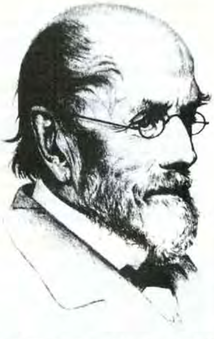Hensleigh Wedgwood
| Hensleigh Wedgwood | |
|---|---|
 |
|
| Born |
21 January 1803 Tarrant Gunville, Dorset |
| Died | 2 June 1891 (aged 88) Gower Street, London |
| Resting place |
Stoke Minster (The Church of St. Peter ad Vincula) 53°00′15″N 02°10′53″W / 53.00417°N 2.18139°W |
| Nationality | English |
| Alma mater | Christ's College, Cambridge |
| Occupation | Barrister, magistrate, Philologist |
| Known for | Writing on English Etymology |
| Spouse(s) |
|
| Children | six |
| Parent(s) |
|
| Relatives |
|
Hensleigh Wedgwood (21 January 1803 – 2 June 1891) was a British etymologist, philologist and barrister, author of A Dictionary of English Etymology. He was a cousin of Charles Darwin - whom his sister Emma married in 1839.
Wedgwood was born at Tarrant Gunville in Dorset, the fourth son of Josiah Wedgwood II and Elizabeth Allen of Cresselly, Pembrokeshire.
He was educated at Rugby School, then entered St John's College, Cambridge in 1820 but switched to Christ's College the following year. Though he did well in maths, graduating as 8th wrangler, he finished bottom in the classical tripos at Cambridge in 1824, for which he was awarded the first "wooden wedge", equivalent to the wooden spoon, and jokingly named for him.
After leaving Cambridge, Wedgwood read for the chancery bar. In 1828, he qualified as a barrister, but never practiced. Between 1831 and 1837, he served as a Police Magistrate and sat at the Surrey Magistrates court at Union Hall, Southwark.
A notable case that came before him during his tenure was that of James Pratt and John Smith in 1835, who he committed to trial after their arrest for homosexual acts. After their trial and conviction at the Central Criminal Court, the two became the last to be executed for sodomy in England. This was in spite of Wedgwood himself calling for a commutation of their death sentences in a letter to the Home Secretary.
...
Wikipedia
